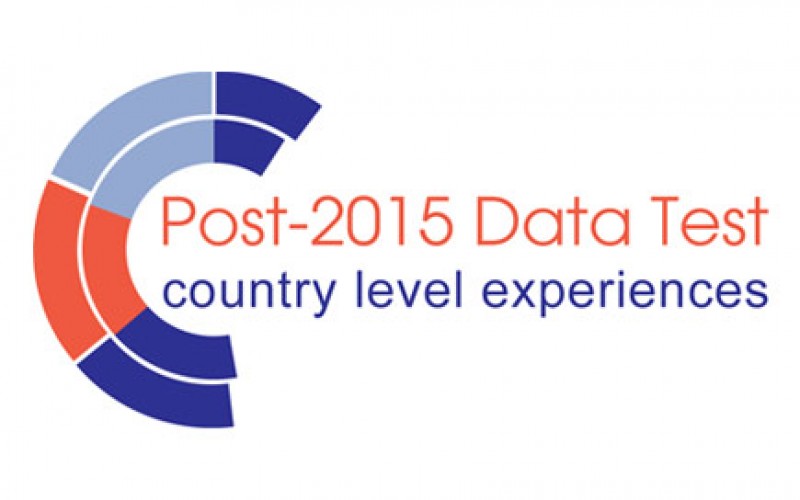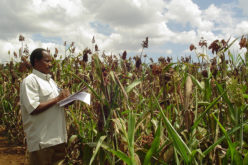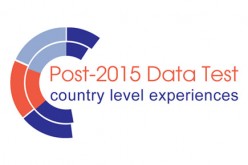Recently, the Post-2015 Data Test released its latest report, Measuring Sustainable Development to 2030: A view from Turkey. The report, which provides an overview of priorities for Turkey in the implementation of the Sustainable Development Goals (SDGs) and examines the adequacy of data for follow-up and review, suggests a number of thought provoking ramifications regarding the meaningfulness and the usefulness of SDGs.
Public and private awareness and ownership over the SDGs is very important to their meaningfulness and usefulness. As the preparatory process for the SDGs continues, the study makes clear that broad participation is critical to producing good ideas and valid proposals in the generation of a country’s priorities both in negotiations and in implementation going forward. Although the final result in September will be a set of SDGs for everyone, everywhere, each country’s input is crucial for arriving at a meaningful outcome. Nevertheless, no matter how well defined the goals are, their usefulness and effectiveness will depend on the existence of a sufficiently large enough group of policymakers and implementers ready and committed to take them into account either as goals or as policy guidelines. Broad participation in the generation of ideas that national negotiators take to international forums in preparatory phases should lead to broader national ownership and commitment to implementation, once the SDGs are actually agreed. Subsequent publicity could help, but only partially. In Turkey, substantive work on the preparatory process is basically confined to one Ministry (Ministry of Development) with the Turkish Statistical Institute aware of the eventual demands that will be made of them. The interest from academic circles and civil society, however, is sporadic. The preparation of the Turkey report provided some impetus for generating interest when views were solicited from various sources. It is hoped that the report will further help in this direction and enhance awareness and ownership.
Just as the implementation of the Post-2015 Data Test in different countries will provide an ultimate reality check for the SDGs in terms of data availability, the preparation of the country report was also a reality check for its authors. Even in cases where countries have relatively good quality data on a range of economic, social and environmental issues, monitoring the SDGs will still present a challenge. Under the study, data availability had to be assessed not for an academic paper or a political statement but with the purpose of monitoring eventual internationally agreed indicators. Putting the potential indicators into the Turkish context was a challenging exercise. While some of the indicators examined under the study were not very meaningful in Turkey’s context, such as those relating to “modern cooking solutions,” it was revealing that finding data on some relatively simple indicators such as “population with access to an all-season road” would be impossible without much research. Moreover, some indicators and targets would need to be adapted to better suit Turkey’s upper-middle income context. For example, in relation to infrastructure, at Turkey’s level of industrialization, the cost of electricity becomes more important than outages.
One of the crucial stakeholders in SDG monitoring will be the Turkish Statistical Institute, and the report provides some indication of what may be eventually required from them. It also suggests that each goal area will likely be faced with data challenges. While there are ample data on poverty, when some interesting questions are raised, for example on ethnic differences, disaggregation becomes very problematic. Examination of education indicators revealed another issue, namely that of the validity of electronic registry systems. While every person of school age is assigned to a school, the reality check of actual attendance reminds us to question the validity of data even when they seem to be easily and readily available. The report also found that some indicators important for Turkey and countries of its level of development, such as on occupational injuries in the context of monitoring employment outcomes, are unavailable. Data related to governance is an area where access to administratively collected data becomes a significant issue – for example, in terms of measuring issues related to rule of law. Similarly, with environmental indicators that look at the existence of regulations, a significant gap can exist in terms of implementation.
The report provides useful insight on meaningful indicators for countries facing the middle-income trap, which has implications for the current indicator selection process underway. Under the study, the team also identified country specific indicators to reflect Turkey’s priorities. Many of the indicators which were suggested by the Turkish team reflected the concerns of a country faced with a middle income trap. In a global context, such indicators would make much sense for many countries in a similar situation. For example, the issue of quality rather than quantity of education defined many of the Turkey-specific indicators selected for the goal area related to education. Whether and how such issues appear in the final list of indicators will be interesting to see. Fundamentally, the SDG’s usefulness and relevance in Turkey and in similar countries will be much affected by the perception by these countries regarding how their concerns are reflected in the final outcomes.
Ensuring precise definitions for goals, targets and particularly indicators, is a crucial issue for the post-2015 framework. It is unlikely that the existing SDG targets will change substantially to ensure better clarity going forward (notwithstanding the suggested changes in the zero outcome document for September). It is here that academics and data providers must play a crucial role. Things that sound meaningful and attractive politically may be extremely difficult to define precisely so that they can be measured and monitored. “Equal pay for equal work” is a laudable goal but defining the equality of work needs considerable statistical skill. International comparability is an added concern. Similarly, in the case of targets and indicators related to global partnership, differences in types and terminology of cooperation exist and practical definitions may need to be introduced.
The costs and trade-offs related to data generation presented by SDG monitoring should not be under-estimated and prioritization of efforts will be needed. As sources of information in Turkey, surveys are very useful as they are timely and detailed, particularly those done using standards of the European Union. Nevertheless they are expensive. Administrative data, collected by the government in doing its daily work and providing services to its citizens has great potential as a source of information. If more information of this type can be collected in a statistically useful manner, following standard definitions and meeting statistical standards, the statistical offices of many countries, Turkey included, could focus on much more specialized work and improve the availability of information for policy-making.
Mehmet Arda was formally a Professor at Galatasaray University based in Istanbul, Turkey. He served as Coordinator of the the Turkish case study under the Post-2015 Data Test initiative.









